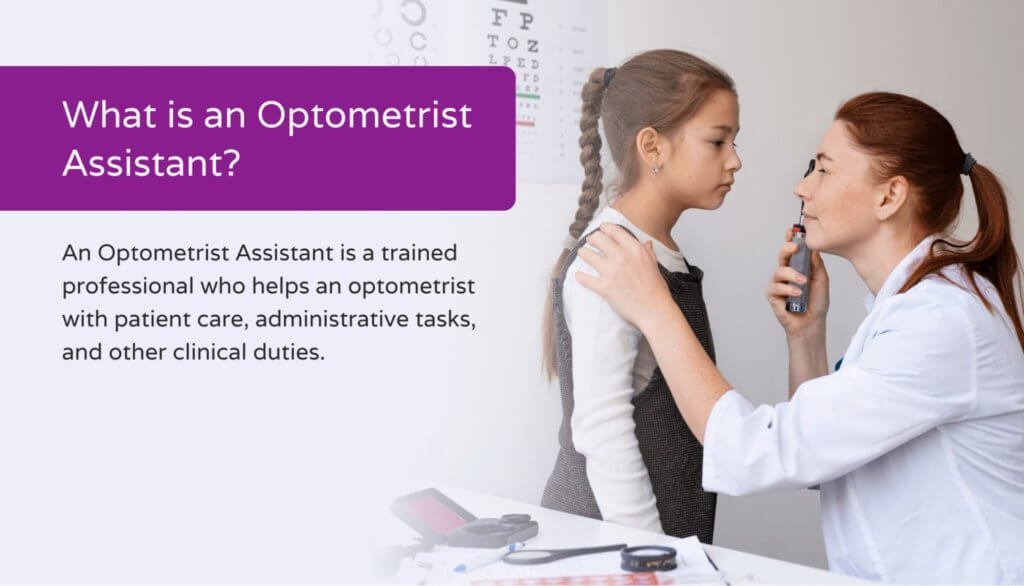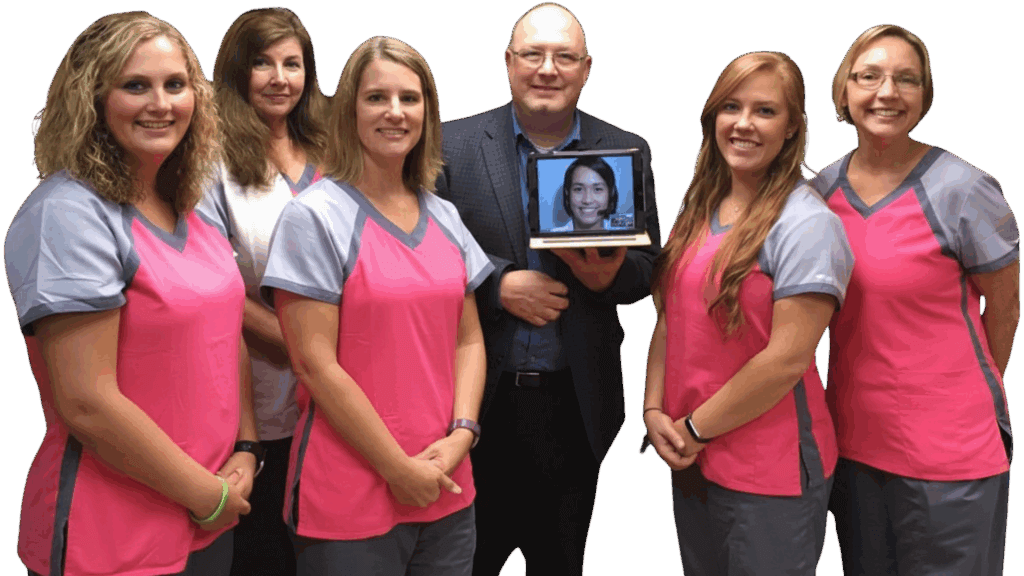With over 43,000 optometrists in the United States as of 2020, and a growing number of Americans using vision correction services, the demand for optometrist assistants is on the rise. If you’re considering hiring an optometrist assistant, you should keep a few things in mind.
This article will help you learn all the facts about optometrist assistants so you can decide whether or not this is the right role for you and your business. Once you’ve decided that an optometrist assistant is right for you, we’ll walk you through the steps of how to hire one.
What is an optometrist assistant?
An optometrist assistant is a trained professional who helps an optometrist with patient care, administrative tasks, and other clinical duties. Many optometrist assistants have completed a formal training program and are certified by the American Optometric Association (AOA). These professionals are vital in ensuring that patients receive high-quality optometric care.
Optometric assistants are not only responsible for assisting the optometrist, but they also play a key role in educating patients about their eye health. These individuals may provide information on how to properly care for contact lenses, how to clean glasses, and what to do if you experience vision problems.
There is a growing demand for optometrist assistants due to the aging population and the increased use of vision correction services. Plus, 25.3% of children aged 2-17 years wore glasses or contact lenses in 2019. This percentage only increased with age, highlighting the importance of optometrist assistants in our society.
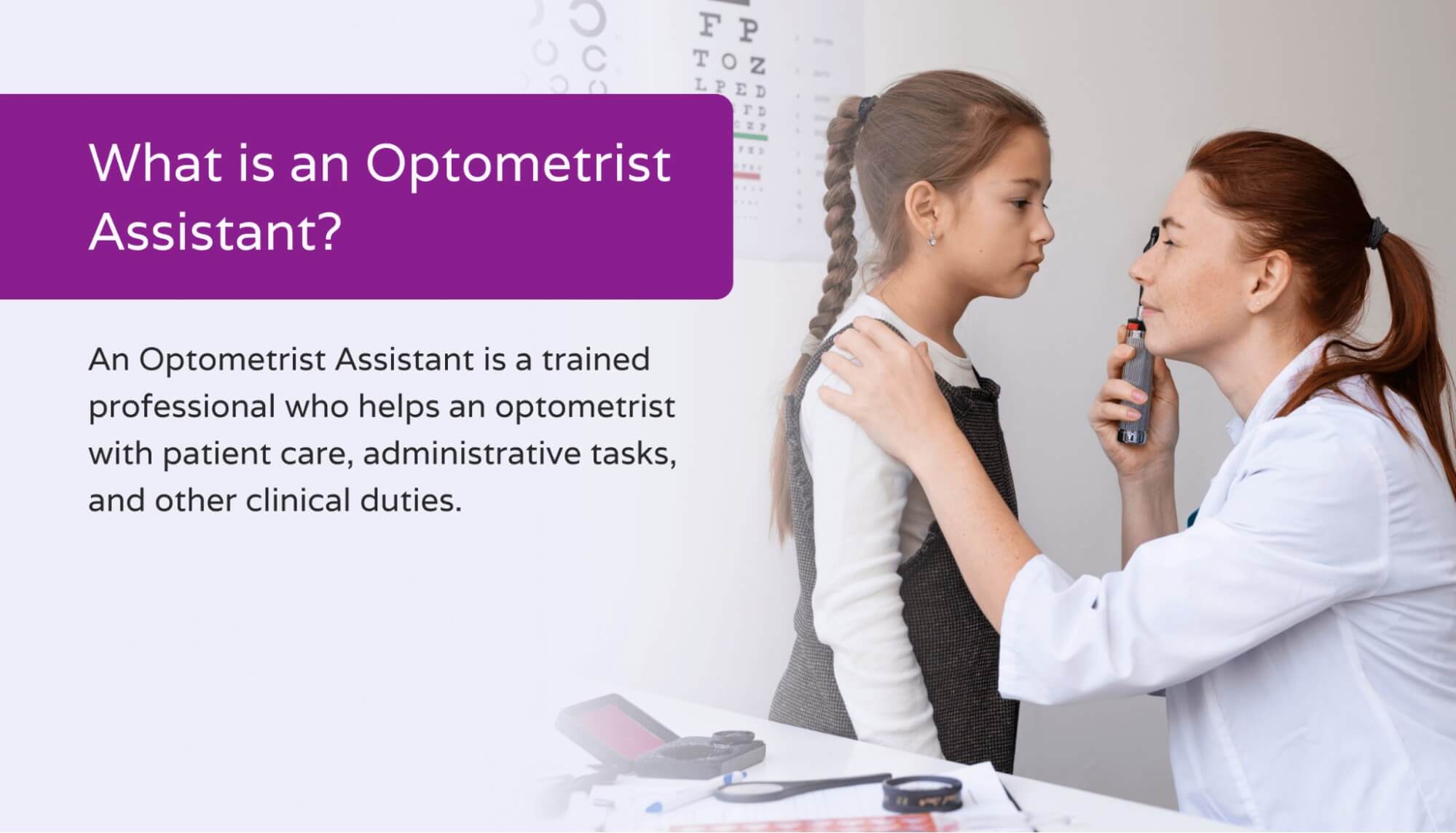
While optometrist assistants have some specialist tasks, other parts of their roles could be done by a more general administrative assistant.
Contact Hello Rache to learn more about Healthcare Virtual Assistants and virtual front desk services. Many optometry offices use these services to help with administrative tasks and free up the optometrist’s time so they can see more patients.
Daily responsibilities of an optometrist assistant
While the daily responsibilities of an optometric assistant can vary between practices, there are some common duties that these professionals typically perform. These responsibilities include:
Greeting patients and scheduling appointments
One of the main functions of an optometrist assistant is to greet patients when they arrive for their appointment and schedule future appointments. This involves answering phone calls, checking in on patients, and entering data into the practice’s electronic health records system. While an in-house employee can do this, many virtual optometrist assistants work via conferencing software like Zoom to handle these tasks remotely.
Performing vision screenings and tests
Optometrist assistants are often responsible for performing basic vision screenings and tests. This can include checking patients’ visual acuity, testing their color vision, and assessing their depth perception. In some cases, the optometrist assistant may also administer more comprehensive eye exams. They may also provide information to patients about how to keep their eyes healthy.
Charting patients’ medical histories
In order to provide the best care, optometric assistants must keep accurate and up-to-date records of patient histories. This includes documenting any changes in the patient’s health, medications, and allergies. This information is vital in case of an emergency.
Processing co-payments
In many cases, optometrist assistants are also responsible for processing patient co-payments. This can involve taking payment via cash, check, or credit card. In some cases, the optometrist assistant may also need to submit insurance claims on behalf of the patient.
Answering patient questions about insurance coverage and billing
Optometrist assistants are often the first point of contact for patients with questions about their insurance coverage or billing. This involves providing accurate and up-to-date information about the patient’s policy. In some cases, the optometrist assistant may also need to contact the insurance company directly to resolve any issues.
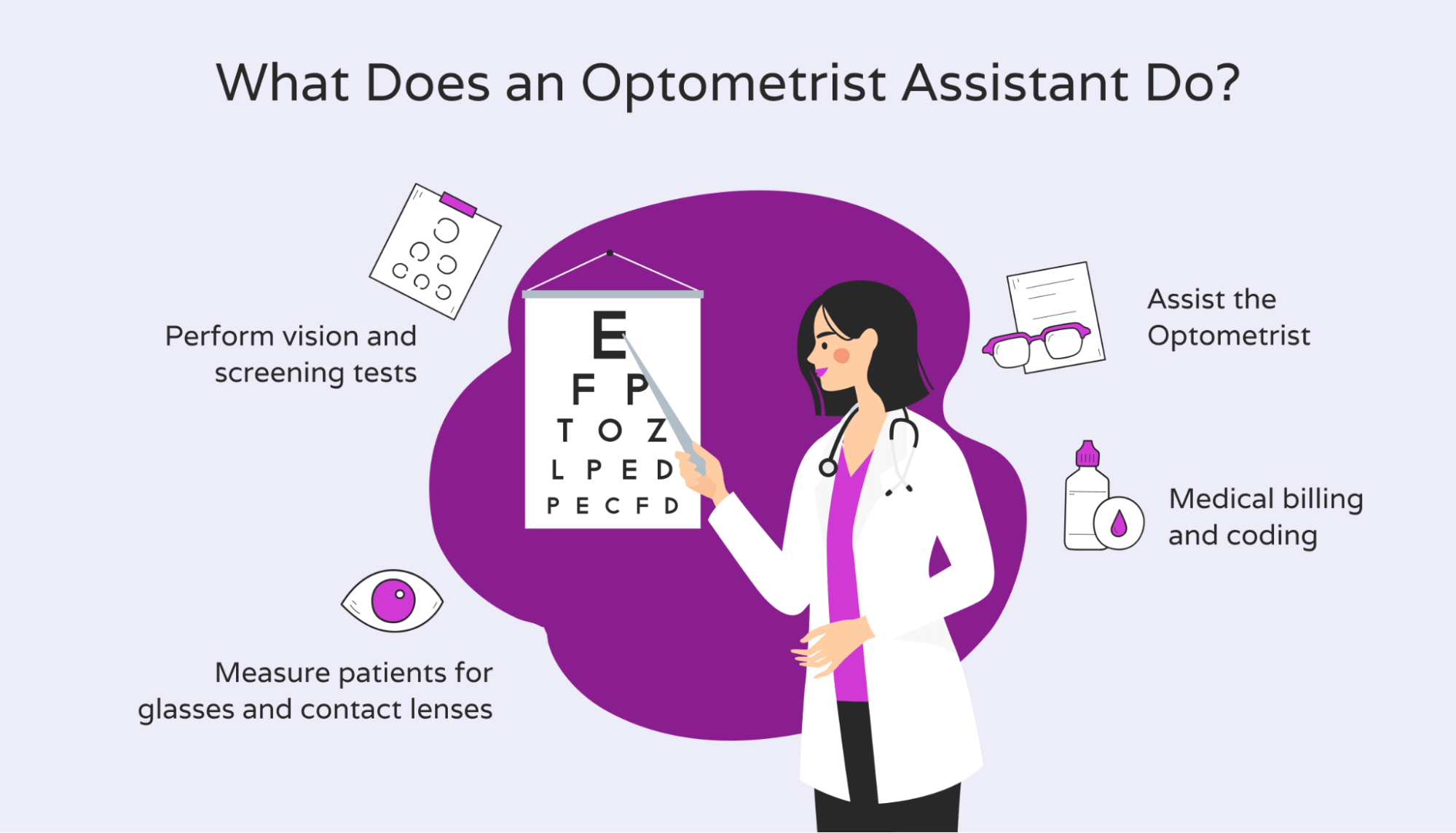
Medical billing and coding
In some cases, optometrist assistants may be responsible for medical billing and coding. This involves submitting insurance claims and medical coding patient records according to the correct diagnostic codes. This is a vital task that helps ensure that the practice is reimbursed for the services it provides.
Key skills of an optometrist assistant
Optometric assistants are a vital part of any optometry practice. These professionals provide important administrative and clinical support to optometrists. To succeed in this role, some specific skills are essential. These skills include:
Excellent customer service skills
Optometrist assistants must be able to provide excellent customer service to patients. This includes being polite, helpful, and responsive to patients’ needs. Visiting a medical office can be nerve-racking, so it’s important that optometrist assistants make patients feel comfortable and welcome.
Strong communication and interpersonal skills
Optometric assistants must be able to communicate effectively with patients and staff. This includes listening carefully, asking questions, and providing instructions clearly. It’s also important that optometrist assistants be able to build rapport with patients. This will help create a positive and enjoyable experience for the patient.
Detail-oriented and organized
Optometrist assistants must be detail-oriented to accurately record patient information. This includes taking accurate measurements, documenting changes in the patient’s health, and coding insurance claims correctly. It’s also important that optometric assistants be organized in order to keep the office procedures running smoothly. This includes maintaining clean and tidy work areas, stocking supplies, and scheduling appointments.
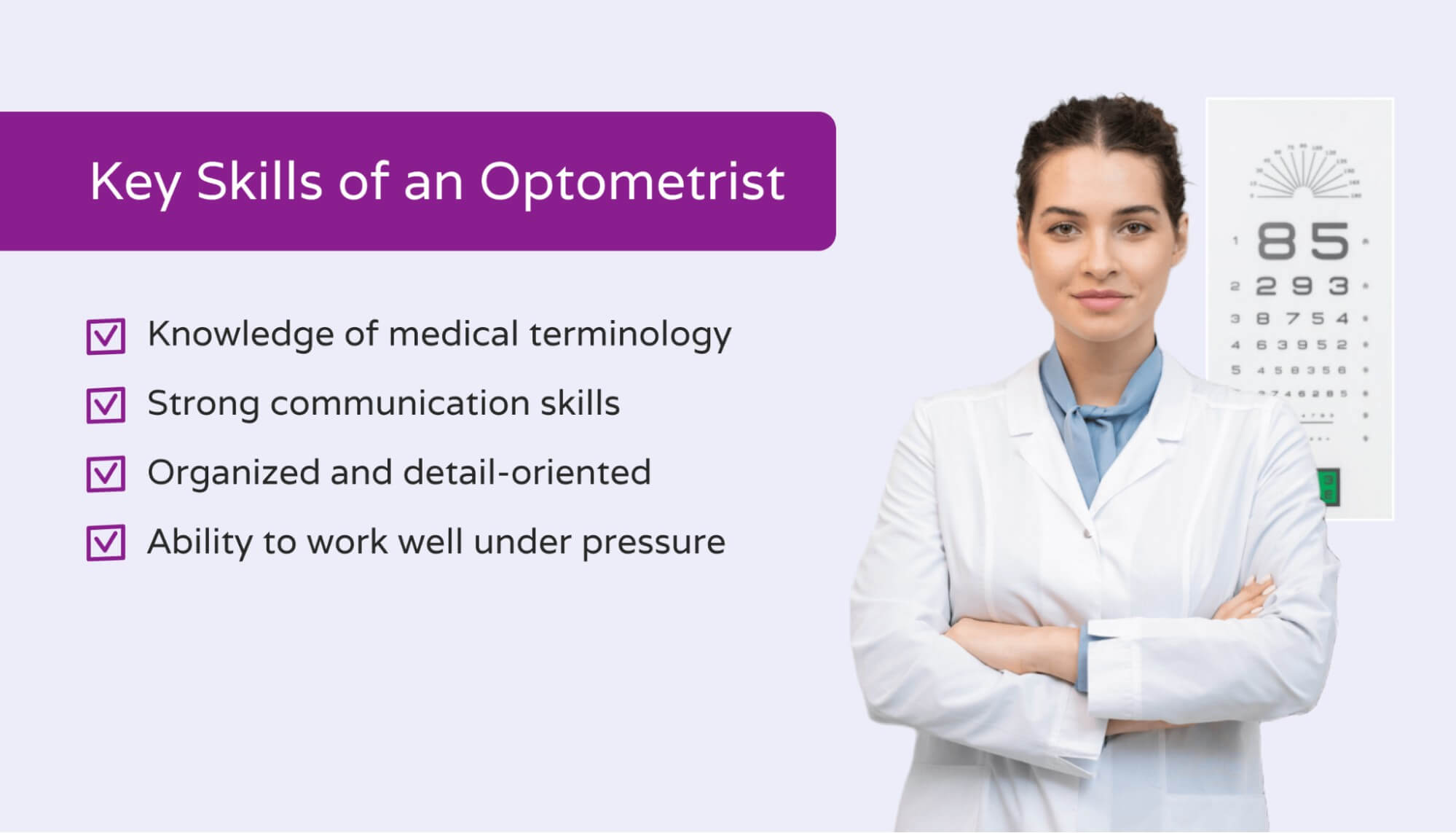
Able to multitask and work well under pressure
Optometrist assistants must be able to juggle multiple tasks at once. This includes answering phones, greeting patients, and charting medical histories. It’s also important that optometrist assistants be able to work well under pressure. This is often a fast-paced environment, so it’s important that optometrist assistants are able to stay calm and focused.
Knowledge of optometric terminology
Optometrist assistants must have a working knowledge of optometric terminology. This includes knowing the names of common eye conditions, medications, and tests. This knowledge is essential for providing accurate information to patients and staff.
These are just some of the key skills that are essential for optometric assistants. If you’re considering hiring an optometrist assistant, consider these skills when making your decision.
Benefits of hiring an optometrist assistant
There are many benefits to hiring an optometrist assistant, including:
Improved patient satisfaction
Optometrist assistants can help create a more positive patient experience by providing exceptional customer service. They can also answer insurance coverage and billing questions, which can help reduce patient stress and confusion.
Increased efficiency
Optometrist assistants can perform many of the tasks that an optometrist would otherwise have to do, freeing up the optometrist’s time to see more patients. This can help boost the efficiency of the optometric practice.
Reduced costs
Optometrist assistants are often less expensive to hire than licensed optometrists. This can help lower the overall costs of running an optometry practice.
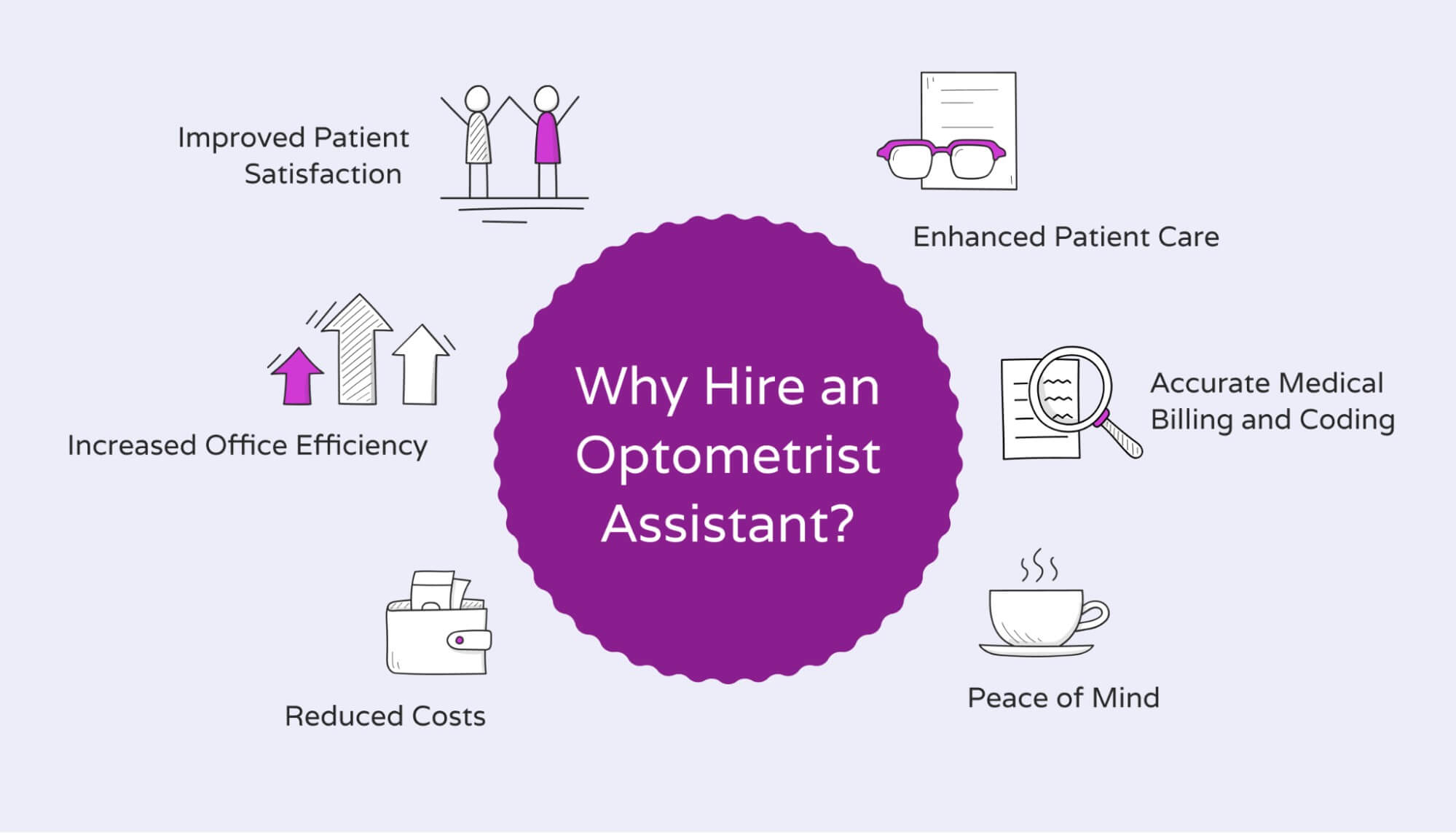
More time for patient care
Optometrist assistants can help optometrists focus more on patient care by taking on many administrative tasks and other clinical duties. This can lead to an increase in patient satisfaction and loyalty to your practice.
Tips for hiring an optometric assistant
While there is no formula for finding an optometrist assistant, there are a few things to keep in mind that can help you find the best candidate for the job.
Verify training
One of the key things to look for when hiring an optometrist assistant is proof of training and certification. The American Optometric Association offers a Certified Paraoptometric Technician program that helps prepare individuals for the role of an optometrist assistant. Be sure to ask candidates for their certification status and verify that they are indeed certified by the AOA.
Check references
When you’re considering candidates for the role of optometrist assistant, be sure to ask for references from previous employers. This will help you understand the candidate’s work ethic and skills. It’s also important to conduct a thorough background check to ensure that the candidate is someone you can trust.
Look for customer service skills
One of the most important skills for an optometrist assistant is excellent customer service. This person will be the face of your optometric practice, so they must have strong communication skills and a friendly demeanor. It’s also important that optometrist assistants be detail-oriented and organized in order to keep the optometric practice running smoothly.
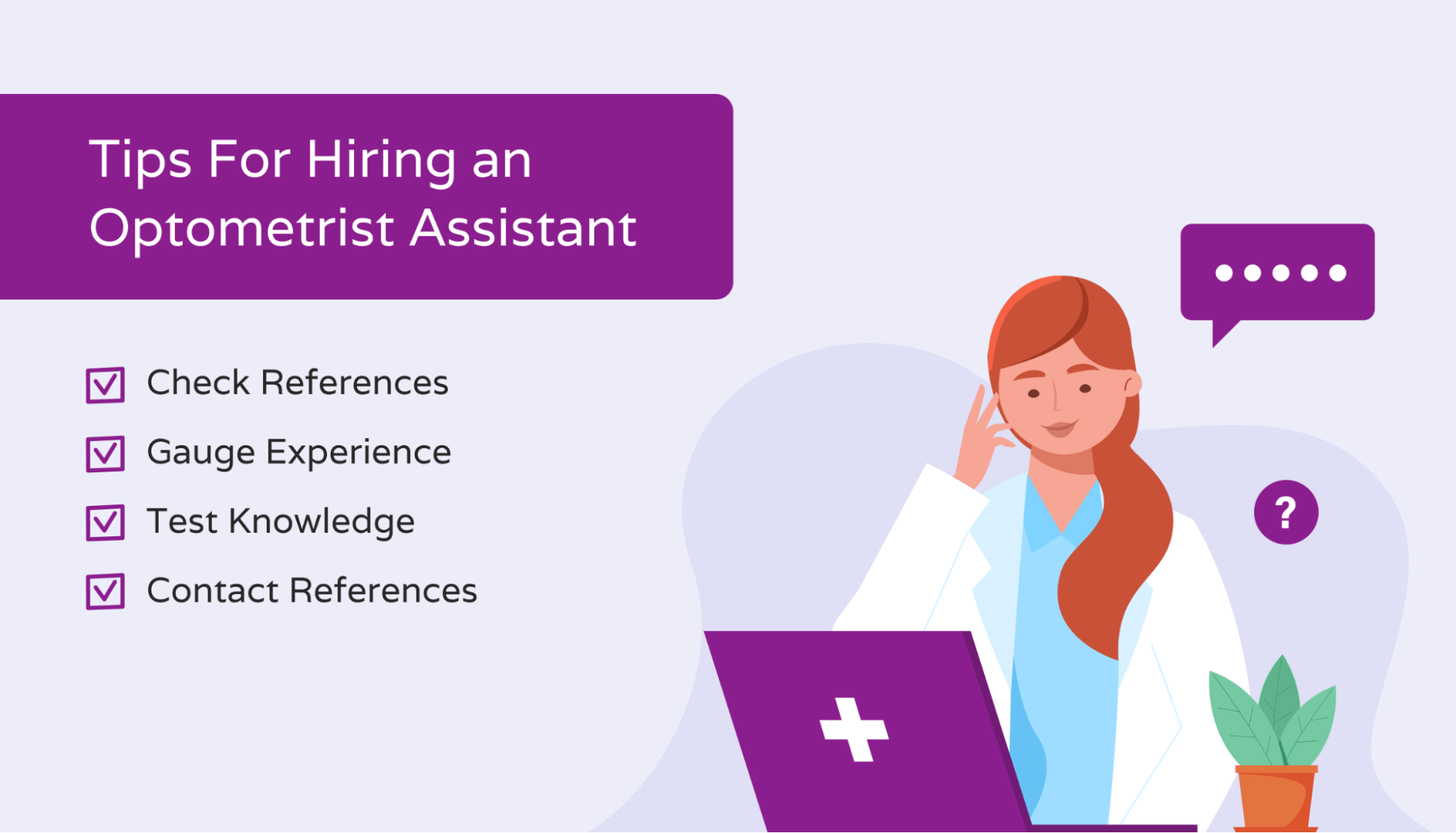
Consider optometric knowledge
As mentioned previously, optometrist assistants must have a working knowledge of optometric terminology. This includes knowing the names of common eye conditions, medications, and visual acuity tests. This knowledge is essential for providing accurate information to patients and staff. When interviewing potential assistants, remember to ask them questions about optometric terminology to gauge their knowledge.
Optometrist assistant salary and demand
With the aging population and the increased demand for optometric services, the need for optometrist assistants is expected to rise in the coming years. However, the optometrist assistant’s salary and job demand can vary depending on a variety of factors such as location, experience, and education.
On average, the hourly wage for an optometrist assistant is $17.87 per hour. The top 10% of earners make an average of $50,880 per year, while the bottom 10% earn an average of $27,920 per year.
There are many factors that can affect job demand for ophthalmic assistants. For instance, the job demand is expected to be higher in areas with a large aging population. Additionally, job demand may be higher in states that have enacted laws that require insurance providers to cover routine eye exams.
The United States Bureau of Labor Statistics states the demand for optometrist assistants will grow by 4.1% by 2030, which is higher than the average growth rate for all occupations. Due to this expected growth, the demand for optometrist assistants will remain strong in the coming years.
Virtual optometrist assistants: a stress-free and more affordable alternative
The future of healthcare is moving toward a virtual model, and optometry is no different. Virtual optometrist assistants are a stress-free and affordable way to tackle those demanding administrative tasks, providing more time to dedicate to patient care.
Virtual receptionists are easier to hire than in-office staff, and they can be more affordable since you only pay for the hours you need. They are also a great option if you only need part-time or sporadic help, which is difficult to obtain with an in-office assistant. If your office sees an influx of patients during certain times of the year, a virtual assistant can help alleviate some of the pressure by handling appointments, insurance claims, and other administrative tasks.
Obtaining a virtual optometrist assistant through Hello Rache is cheaper than hiring an additional in-office staff member, and you only pay for the hours you need. With a virtual assistant, you don’t have to worry about providing benefits, vacation days, or other perks associated with full-time employees. Additionally, your current staff can focus on providing direct patient care rather than being pulled away to handle administrative tasks.
With Hello Rache, virtual optometrist assistants connect with your patients via secure teleconferencing software like Zoom to handle inquiries, prescriptions, and other tasks. This interaction can help build trust with your patients and make them feel more comfortable with the care they’re receiving. Read through the How it Works section to learn more about how our virtual assistants can help you streamline your optometry practice.
Find an optometrist assistant today
With the demand for optometrist assistants only expected to increase in the coming years, now is the time to find the perfect assistant for your practice. There are numerous websites and agencies that can help you find the right optometrist assistant for your needs.
When searching for an optometrist assistant, it’s important to consider their experience, education, and location. If you want to stay ahead of the times, you should also consider hiring a virtual assistant. Virtual assistants offer many benefits over hiring extra in-office staff and can be a great addition to any optometry practice.
Hello Rache is the leading provider of virtual assistants, and our team can help you tackle any administrative task. Read through our FAQ page to learn about how our services can benefit you and your patients. Contact us today to get started!

